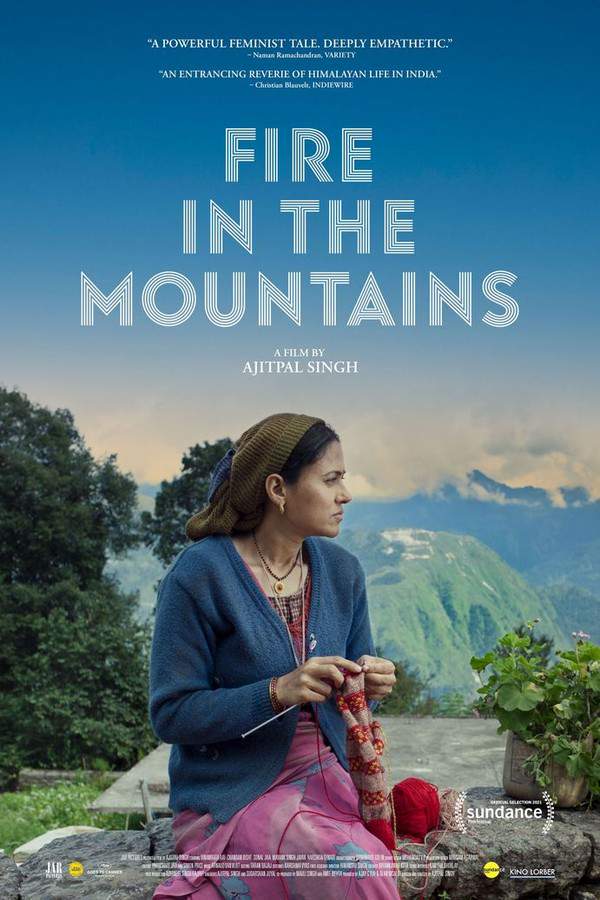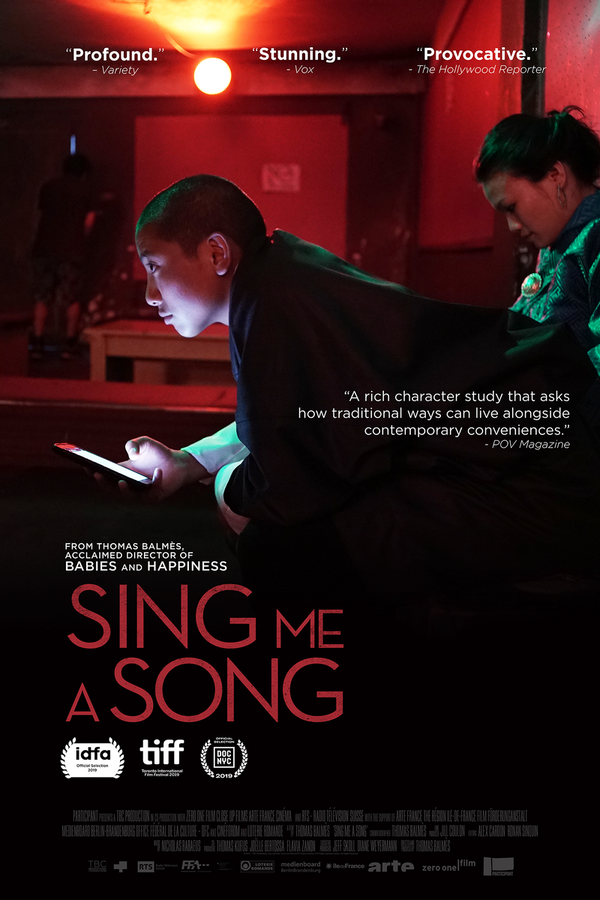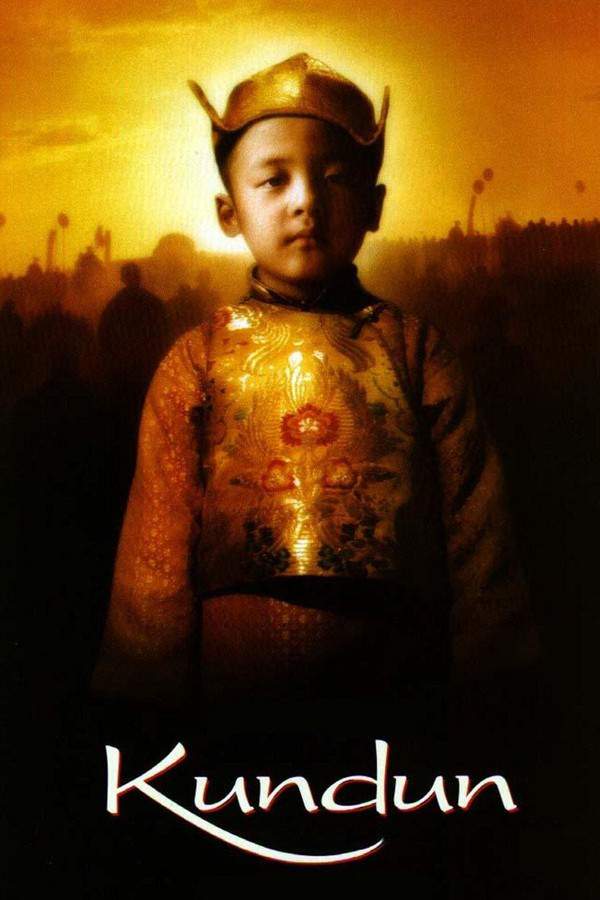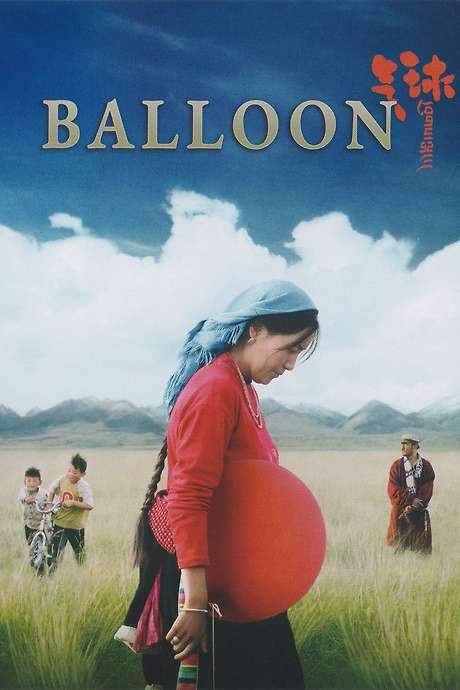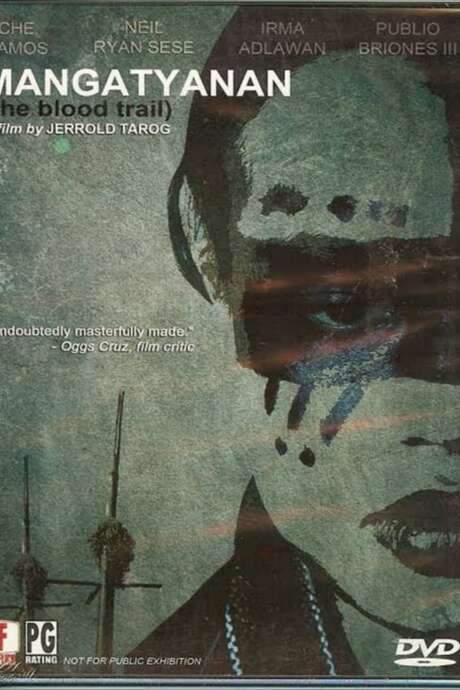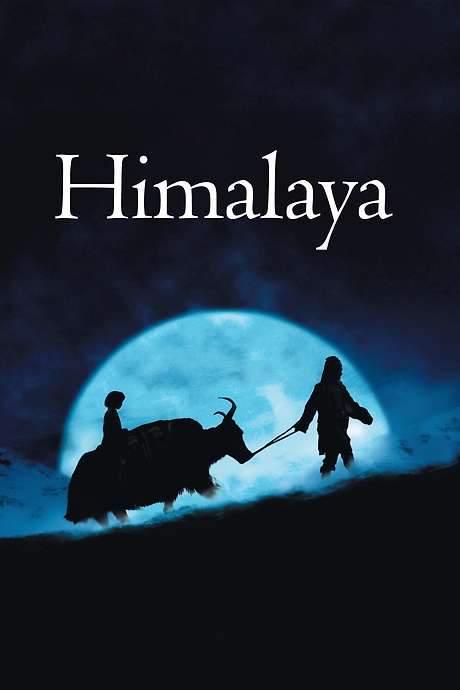Lunana: A Yak in the Classroom 2022
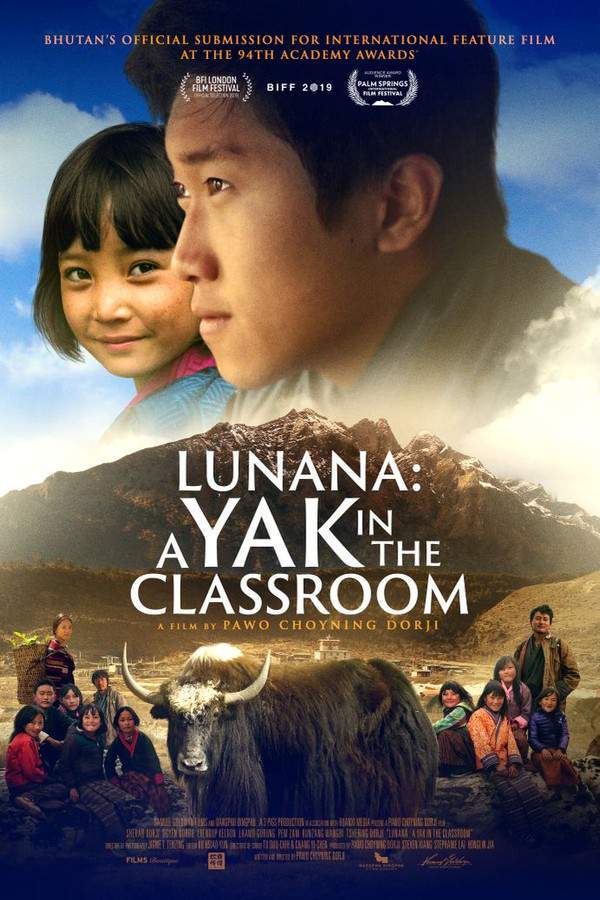
A young man living in the remote Himalayan village of Lunana finds his musical aspirations challenged by the constraints of his traditional life. He grapples with familial expectations, romantic feelings, and the pull of a future beyond his isolated community. The story explores themes of identity, cultural preservation, and the pursuit of dreams against a backdrop of breathtaking natural beauty and ancient customs.
Does Lunana: A Yak in the Classroom have end credit scenes?
No!
Lunana: A Yak in the Classroom does not have end credit scenes. You can leave when the credits roll.
Meet the Full Cast and Actors of Lunana: A Yak in the Classroom
Explore the complete cast of Lunana: A Yak in the Classroom, including both lead and supporting actors. Learn who plays each character, discover their past roles and achievements, and find out what makes this ensemble cast stand out in the world of film and television.
External Links and Streaming Options
Discover where to watch Lunana: A Yak in the Classroom online, including streaming platforms, rental options, and official sources. Compare reviews, ratings, and in-depth movie information across sites like IMDb, TMDb, Wikipedia or Rotten Tomatoes.
Ratings and Reviews for Lunana: A Yak in the Classroom
See how Lunana: A Yak in the Classroom is rated across major platforms like IMDb, Metacritic, and TMDb. Compare audience scores and critic reviews to understand where Lunana: A Yak in the Classroom stands among top-rated movies in its genre.

The Movie Echo Score
In terms of overall impression, Lunala delivers a gentle, heartfelt narrative that resonates through its sincere thematic focus. Critics highlight its purity of spirit and uplifting message, while users appreciate its wholesome tone and visual charm despite noting a predictable plot. The film’s modest pacing and earnest storytelling combine to create an appealing, though unremarkable, cinematic experience. Consequently, the movie achieves a solid yet not exceptional standing among contemporary international dramas.
The Movie Echo Score Breakdown for Lunana: A Yak in the Classroom

Art & Craft
Artistic execution is anchored by striking cinematography and thoughtful production design. Critics repeatedly praise the breathtaking Bhutanese landscapes and the film’s visual composition, and users echo the “lovely visuals” and “stunning” scenery. Direction maintains a measured rhythm that supports the visual storytelling without overwhelming it. Overall, the craft reflects a high level of aesthetic competence.

Character & Emotion
Character work centers on understated performances that convey modest emotional depth. Reviews note nuanced acting from the leads, including an accomplished singer, and commend the chemistry that develops between teacher and villagers. Users also mention good acting and heartfelt sentiment despite occasional predictability. The portrayal succeeds in delivering an authentic, if gentle, human connection.

Story & Flow
Storywise, the film follows a simple premise of a reluctant teacher’s reassignment to a remote Bhutanese village. Critics acknowledge the gentle humor and life‑affirming tone but point out the predictable arc and lack of narrative surprises. Some viewers found the ending unsatisfying, reflecting a modestly engaging yet conventional storyline.

Sensory Experience
Sensory experience is dominated by immersive natural soundscape and a restrained musical score that complement the film’s visual palette. Reviewers highlight the film’s breathtaking scenery and the understated auditory design that allows ambient sounds to enhance mood. This cohesive sensory approach reinforces the film’s contemplative atmosphere.

Rewatch Factor
The film’s modest pacing and uplifting themes lend it modest rewatch value for audiences seeking gentle reflection. Critics and users alike cite its wholesome tone and visual appeal as reasons to revisit, though the predictable plot and uneven ending may limit repeat viewings for some. Overall, it offers a pleasant, if not compelling, incentive for a second watch.

76
Metascore
7.7
User Score


98%
TOMATOMETER

87%
User Score

7.5 /10
IMDb Rating

74
%
User Score

3.67/5
From 3 fan ratings
Take the Ultimate Lunana: A Yak in the Classroom Movie Quiz
Challenge your knowledge of Lunana: A Yak in the Classroom with this fun and interactive movie quiz. Test yourself on key plot points, iconic characters, hidden details, and memorable moments to see how well you really know the film.
Lunana: A Yak in the Classroom Quiz: Test your knowledge about the poignant journey of Ugyen in Lunana as he navigates teaching, dreams, and community.
What is Ugyen's main dream at the beginning of the movie?
To become a politician
To become a singer in Australia
To travel the world
To open a school
Show hint
Awards & Nominations for Lunana: A Yak in the Classroom
Discover all the awards and nominations received by Lunana: A Yak in the Classroom, from Oscars to film festival honors. Learn how Lunana: A Yak in the Classroom and its cast and crew have been recognized by critics and the industry alike.
94th Academy Awards 2022
International Feature Film
Full Plot Summary and Ending Explained for Lunana: A Yak in the Classroom
Read the complete plot summary of Lunana: A Yak in the Classroom, including all major events, twists, and the full ending explained in detail. Explore key characters, themes, hidden meanings, and everything you need to understand the story from beginning to end.
Ugyen, portrayed by Sherab Dorji, is at a crossroads in his life after completing four out of his five obligatory years of government teacher training. Lacking passion for the teaching profession and aspiring instead to pursue a career in singing down under in Australia, he is reluctant to take on a new assignment at the most remote school in the world, located in the isolated village of Lunana. His determination to quit is dampened by the heartfelt pleas of his grandmother, who urges him to honor his teaching commitment. Thus, he reluctantly departs the bustling city for the serenity of the mountains.
Accompanied by Michen, played by Ugyen Norbu Lhendup, a villager guide he meets in Gasa—elevation 2800 meters and a population of just 448—Ugyen begins the arduous eight-day trek to Lunana. Throughout this challenging journey, he is assisted by Michen and his assistant Singye, portrayed by Tshering Dorji. Michen proves to be a dependable companion, encouraging Ugyen to push on even when fatigue sets in. As they ascend to Koina, where the population is merely three and the altitude reaches 3100 meters, Ugyen’s discomfort intensifies with leaking shoes, leading to painful sores on his feet. Michen offers home remedies to alleviate his woes, but when Ugyen’s phone battery dies, he finds himself cut off from the world.
Upon reaching Lunana, Ugyen is met with the villagers’ warm welcome—a 56-strong community that traverses two hours just to greet him. Yet, he is taken aback by the village’s poor living conditions, lacking electricity, running water, and even a toilet. Overwhelmed and regretting his decision, he requests to return. But Michen informs him that the mules require rest, and he must stay a few days longer. The next morning, Ugyen is awakened by Pem Zam, the enthusiastic class captain, who tells him the eager students are waiting for his arrival. Realizing he can inspire these children who hold teachers in high regard, Ugyen decides to stay and fulfill his role for the year.
As Ugyen reconnects with the village, he learns from Pem Zam details of the subjects previously taught and discovers the teaching materials stored away in his room. Michen introduces him around, including to Pem Zam’s inebriated father and a grandmother seeking education for her granddaughter, highlighting the pressing need for a teacher. Ugyen begins to adapt, crafting a makeshift classroom using a wall for a blackboard until Michen constructs a more permanent solution. He receives supplies from his friend Tandin through Michen, including copies and a guitar, soon finding joy in teaching various subjects and engaging the children with music.
His connection deepens with the villagers, especially with Saldon, who teaches him a traditional song, Yak Lebi Lhadar, that she sings daily in homage to their village. As their bond grows, Saldon gifts Ugyen a yak named Norbu, to ease his struggles with collecting dung for warmth. Ugyen learns more about village life over dinner with Asha, the village leader, revealing layers of familial connections and loss.
As winter approaches, Asha advises Ugyen to depart before the passes become treacherous. Although he promises to return in spring, Ugyen must break the news to Saldon and the children, who express their deep appreciation for his kindness and teaching. Their touching farewells leave a mark on Ugyen, turning his heart towards the village.
On his way down the mountain, Ugyen reflects upon the meaningful connections he formed, leaving an offering at a shrine for safe travels and hoping to eventually return. Reaching Australia, he faces an initial lack of attention in a bar where he performs. Frustrated but resilient, he shifts to singing Yak Lebi Lhadar, captivating his audience and rekindling his spirits. This marks a poignant full circle in his transformative journey, revealing how much his experience in Lunana shaped his identity and aspirations.
Uncover the Details: Timeline, Characters, Themes, and Beyond!

Coming soon on iOS and Android
The Plot Explained Mobile App
From blockbusters to hidden gems — dive into movie stories anytime, anywhere. Save your favorites, discover plots faster, and never miss a twist again.
Sign up to be the first to know when we launch. Your email stays private — always.
Watch Trailers, Clips & Behind-the-Scenes for Lunana: A Yak in the Classroom
Watch official trailers, exclusive clips, cast interviews, and behind-the-scenes footage from Lunana: A Yak in the Classroom. Dive deeper into the making of the film, its standout moments, and key production insights.
Lunana: A Yak in the Classroom Themes and Keywords
Discover the central themes, ideas, and keywords that define the movie’s story, tone, and message. Analyze the film’s deeper meanings, genre influences, and recurring concepts.

Unlock the World of Movies with Our Comprehensive Wiki
Dive into our Movie Wiki for in-depth film encyclopedia entries, including cast biographies, production trivia, plot synopses, behind-the-scenes facts, and thematic analyses. Whether you’re researching iconic directors, exploring genre histories, or discovering hidden easter eggs, our expertly curated movie database has everything you need to fuel your cinematic passion.

Similar Movies To Lunana: A Yak in the Classroom You Should Know About
Browse a curated list of movies similar in genre, tone, characters, or story structure. Discover new titles like the one you're watching, perfect for fans of related plots, vibes, or cinematic styles.
Quick Links: Summary, Cast, Ratings, More

What's After the Movie?
Not sure whether to stay after the credits? Find out!
Explore Our Movie Platform
New Movie Releases (2026)
Famous Movie Actors
Top Film Production Studios
Movie Plot Summaries & Endings
Major Movie Awards & Winners
Best Concert Films & Music Documentaries
Movie Collections and Curated Lists
© 2026 What's After the Movie. All rights reserved.











